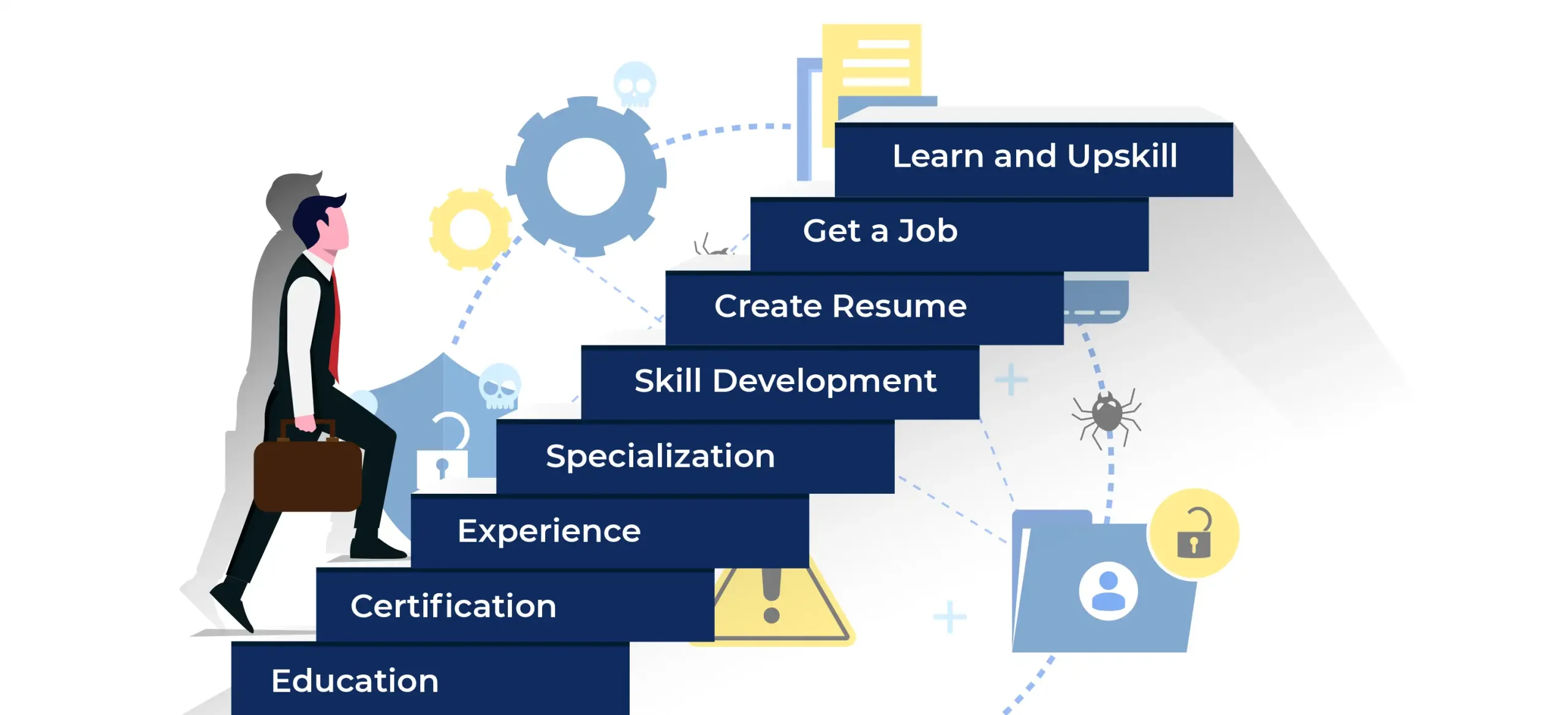Cyber threat intelligence is a critical field in cybersecurity, focusing on identifying, analyzing, and mitigating potential threats to an organization’s information systems. As cyber threats continue to evolve and grow more sophisticated, the demand for skilled professionals in this area is on the rise. If you’re interested in pursuing a career in cyber threat intelligence, this guide will provide you with the necessary steps to get started and succeed in this dynamic field.
What is Cyber Threat Intelligence?
Cyber threat intelligence involves the collection and analysis of data regarding potential or current cyber threats. Professionals in this field work to understand and anticipate cyber threats by analyzing patterns, tactics, and techniques used by cybercriminals. Their insights help organizations protect their systems and data from various cyber attacks.
Steps to Get Into Cyber Threat Intelligence
1. Acquire Relevant Education
To enter the field of cyber threat intelligence, a solid educational foundation is essential. Consider the following educational pathways:
- Bachelor’s Degree: Start with a bachelor’s degree in cybersecurity, computer science, information technology, or a related field. This provides a strong foundation in the technical and theoretical aspects of cybersecurity.
- Master’s Degree (Optional): For advanced roles, a master’s degree in cybersecurity or a related field can offer deeper knowledge and specialized skills in threat intelligence.
- Certifications: Obtain industry-recognized certifications to enhance your credentials. Certifications such as Certified Information Systems Security Professional (CISSP), Certified Ethical Hacker (CEH), or Certified Threat Intelligence Analyst (CTIA) can be particularly valuable.
2. Develop Core Skills
Cyber threat intelligence requires a specific set of skills. Focus on developing the following:
- Analytical Skills: The ability to analyze and interpret complex data is crucial. You should be able to identify patterns, trends, and anomalies in threat data.
- Technical Skills: Proficiency in various cybersecurity tools and technologies, including intrusion detection systems, firewalls, and threat intelligence platforms, is important.
- Research Skills: Conducting thorough research on emerging threats and vulnerabilities is essential. Stay updated on the latest cybersecurity trends and threat actor activities.
- Communication Skills: Effectively communicating findings and recommendations to non-technical stakeholders is crucial. Clear and concise reporting can help organizations make informed decisions.
3. Gain Practical Experience
Hands-on experience is invaluable in the field of cyber threat intelligence. Consider the following opportunities to gain practical experience:
- Internships: Look for internships or entry-level positions in cybersecurity or IT roles. These positions can provide exposure to real-world threat analysis and incident response.
- Lab Exercises: Participate in cybersecurity labs or simulation exercises to practice threat detection and response skills in a controlled environment.
- Personal Projects: Engage in personal projects related to threat intelligence, such as setting up a home lab, participating in capture the flag (CTF) challenges, or contributing to open-source cybersecurity projects.
4. Build a Professional Network
Networking can play a significant role in advancing your career in cyber threat intelligence. Connect with professionals in the field through:
- Industry Associations: Join organizations like the Information Systems Security Association (ISSA) or the International Association for Privacy Professionals (IAPP) to access resources, training, and networking opportunities.
- Conferences and Seminars: Attend cybersecurity conferences, webinars, and seminars to learn about the latest trends and connect with industry experts.
- Online Communities: Participate in online forums and communities focused on cybersecurity and threat intelligence. Engaging with these communities can provide valuable insights and professional connections.
5. Stay Updated on Industry Trends
The field of cyber threat intelligence is continuously evolving. To stay ahead, keep yourself informed about the latest developments:
- Follow Industry News: Subscribe to cybersecurity news outlets and blogs to stay updated on emerging threats and trends.
- Continuous Learning: Engage in ongoing education through courses, workshops, and certifications to keep your skills and knowledge current.
- Threat Intelligence Reports: Regularly review threat intelligence reports and analyses from reputable sources to understand the latest threat landscapes and tactics.
Career Advancement in Cyber Threat Intelligence
As you gain experience in cyber threat intelligence, consider the following career advancement opportunities:
- Specialization: Specialize in areas such as malware analysis, network forensics, or incident response to become an expert in a specific aspect of threat intelligence.
- Leadership Roles: Move into leadership positions, such as threat intelligence manager or director, where you can oversee a team and strategic initiatives.
- Consulting: Explore opportunities in consulting, where you can provide expert advice and guidance to organizations on threat intelligence strategies and implementations.
Conclusion
Entering the field of cyber threat intelligence requires a combination of education, skill development, and practical experience. By following these steps and staying current with industry trends, you can build a successful career in this vital and rapidly evolving field. With dedication and continuous learning, you’ll be well-equipped to protect organizations from the evr-present and evolving threats in the cyber landscape.


